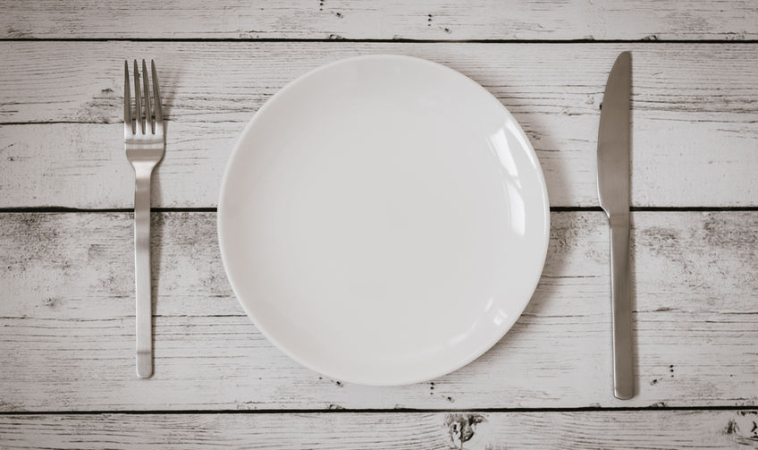Node Smith, ND
Intermittent fasting is getting a lot of press for its positive effects on metabolism, weight loss, cognitive function and health in general. A new study compared a popular intermittent fasting protocol (or “diet”), the 5:2 diet, with a conventional daily calorie restriction diet.1 The study found that the 5:2 diet resulted in a faster clearing of fat from the blood after eating than daily calorie restriction, as well as much faster weight loss.
How the 5:2 diet works
The 5:2 diet is one of many intermittent fasting methods which concentrates less on the amount of food a person is eating everyday, and rather drastically lowers the number of calories on 2 days per week (these days do not have to be back to back). For 5 days, a person’s normal diet is followed, and for 2 days a meal replacement shake is used to keep calories under 600 for the day. Not eating any food for that 24-hour period and completely fasting is also an option of the 5:2 diet and may be easier and more cost effective.
First time researchers have looked at the ability of the 5:2 diet to change fat metabolism after a meal
The study in question is the first time that researchers have looked at the ability of the 5:2 diet to change fat metabolism after a meal – previous research has concentrated on blood markers during a fasting state. This gives a glimpse of how the body is processing sugars and fats when they are being introduced, and likely to be higher in the blood stream.
5:2 study
Overweight participants were assigned to either a 5:2 diet or a daily calorie restriction diet, and required to lose 5 percent of their weight. The participants on the daily calorie restriction diet were instructed to eat 600 calories less than their estimated requirements for weight management (about 1400 for women and 1900 for men).
27 people finished the study. Those on the 5:2 diet achieved 5 percent weight-loss in 59 days, and those on the daily calorie restriction diet took 73 days.
More than weight was found to be reduced
Following weight-loss, participants on the 5:2 diet were found to clear fat (triglycerides) more efficiently from a meal than other participants. There were also changes in markers for insulin, suggesting that insulin production may have been enhanced by this diet as well – an important consideration in diabetes and prediabetes. The study also found greater reduction in blood pressure in the 5:2 diet group.
The 5:2 diet is not for everyone
The 5:2 diet is certainly not for everyone, and approximately 20 percent of the initial study group had to drop out of the study because they could not tolerate the diet. However, for individuals who can tolerate it, the 5:2 diet is a great therapeutic tool. It can be utilized with a person’s current diet, and may help gradually change current eating habits, which further enhances it benefits.
Source:
- Antoni R, Johnston KL, Collins AL, Robertson MD. Intermittent v. continuous energy restriction: differential effects on postprandial glucose and lipid metabolism following matched weight loss in overweight/obese participants. Br J Nutr. 2018;119(5):507-516.
Image Copyright: <a href=’https://www.123rf.com/profile_sean824′>sean824 / 123RF Stock Photo</a>
 Node Smith, ND, is a naturopathic physician in Portland, OR and associate editor for NDNR. He has been instrumental in maintaining a firm connection to the philosophy and heritage of naturopathic medicine among the next generation of docs. He helped found the first multi-generational experiential retreat, which brings elders, alumni, and students together for a weekend camp-out where naturopathic medicine and medical philosophy are experienced in nature. Four years ago he helped found the non-profit, Association for Naturopathic ReVitalization (ANR), for which he serves as the board chairman. ANR has a mission to inspire health practitioners to embody the naturopathic principles through experiential education. Node also has a firm belief that the next era of naturopathic medicine will see a resurgence of in-patient facilities which use fasting, earthing, hydrotherapy and homeopathy to bring people back from chronic diseases of modern living; he is involved in numerous conversations and projects to bring about this vision.
Node Smith, ND, is a naturopathic physician in Portland, OR and associate editor for NDNR. He has been instrumental in maintaining a firm connection to the philosophy and heritage of naturopathic medicine among the next generation of docs. He helped found the first multi-generational experiential retreat, which brings elders, alumni, and students together for a weekend camp-out where naturopathic medicine and medical philosophy are experienced in nature. Four years ago he helped found the non-profit, Association for Naturopathic ReVitalization (ANR), for which he serves as the board chairman. ANR has a mission to inspire health practitioners to embody the naturopathic principles through experiential education. Node also has a firm belief that the next era of naturopathic medicine will see a resurgence of in-patient facilities which use fasting, earthing, hydrotherapy and homeopathy to bring people back from chronic diseases of modern living; he is involved in numerous conversations and projects to bring about this vision.

















